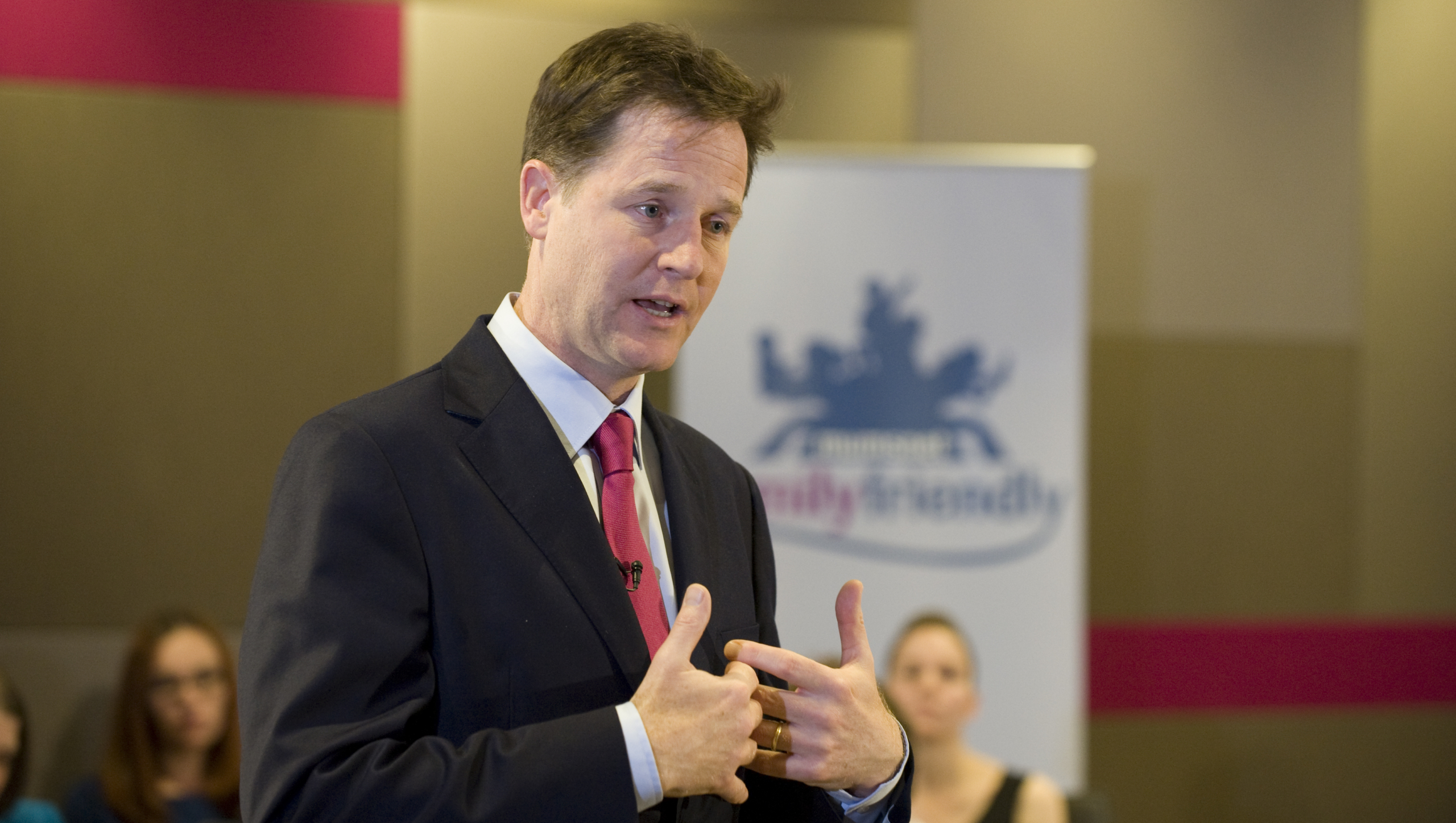Sign up for the daily CJR newsletter.
Nick Clegg’s appointment as Facebook’s new vice president of global affairs and communications raised eyebrows on both sides of the Atlantic—Brits’ in withering bemusement, Americans’ in “who he?” ignorance. In Brussels, Berlin, and Paris, however, the hire will have made perfect sense.
Clegg has become a punchline in the UK; his spell as a centrist, Liberal Democrat deputy prime minister in a rare, Conservative-led coalition government emaciated his party as well as his personal credibility. Clegg, however, remains well-connected—and well-respected—among the European elite.
For Facebook, that’s precious currency. While a series of scandals has battered the company’s reputation in the US, Congress has so far shown little inclination to clip its wings. In the European Union, by contrast, stringent new data protection rules have hit Facebook’s core business model hard, and typified a more interventionist approach to big tech generally.
RELATED: During his interview with Vox, Zuckerberg “seems to become genuinely peeved” at one point
Facebook is clearly betting that Clegg’s savoir-faire—and contact book—will improve its strained relations with the bloc. And beyond those assets, Clegg looks a snug fit in other ways. He’s a died-in-the-wool liberal used to defending unpopular, incremental change in an era of convulsive political polarization.
As UK voters decisively soured on the European project in recent years, Clegg bucked the trend as a consummate, cosmopolite Europhile with real political clout. His mother is Dutch, his wife is Spanish, and those are just two of the five languages he speaks. He first served the EU as a technocrat before his election, in 1998, to the European Parliament. In 2010—now a UK lawmaker and leader of the Liberal Democrats—Clegg struck a coalition agreement that made him new Conservative Prime Minister David Cameron’s deputy. Clegg’s star was rising. But the British public, unaccustomed to multi-party government, quickly brought him to earth. In 2015, he resigned as leader of his party after it was booted from government and decimated in Parliament. Two years later, Clegg lost his own seat.
In the coalition years, Clegg acted as a firewall between Cameron, who wanted Britain to remain in the EU, and many Conservative lawmakers, who wanted out. With Clegg gone, Cameron had no choice but to call a referendum on EU membership, which his side lost in 2016. Clegg was a prominent voice for the Remain campaign despite his fall from grace, and he has continued to advocate vocally for a second referendum, which he hopes would overturn Brexit.
Clegg is thus less aligned with his countrymen than with the European elites who have given Facebook such a hard time of late. Since the EU introduced hardened new data laws earlier this year, Facebook has been squarely in its crosshairs: The company could be fined more than a billion dollars should European regulators determine that it did not take sufficient steps to prevent a mass breach of user data last month. More broadly, European lawmakers are far less tolerant of unregulated corporate monopolies than their US counterparts.
Before taking the Facebook job, Clegg sought assurances from Facebook CEO Mark Zuckerberg that he’d be allowed into the company’s “black box,” with significant say over its inner workings and future direction. How Facebook responds to this challenging European climate will surely be central to his purview. Clegg won’t overturn a continent’s entrenched governing philosophy. But he might be able to shape it, and he can certainly be Facebook’s window onto a world it does not fully understand.
Clegg is a good fit for Facebook in other ways. He’s a classical liberal in the economic and social senses of the term, and a firm believer that incremental change can, eventually, be transformative. While he has criticized Facebook in the past (for its monopoly grip and its “messianic Californian new-worldy-touchy-feely culture”), he has consistently argued that big tech is an overwhelming force for good. After his Facebook move was confirmed, he told the BBC, “I’m basically a tech optimist, a liberal who thinks you should shape progress.”
Before his reputation went south, Clegg was known as a gifted communicator—an attribute that will be central to his new role. After excelling during Britain’s first-ever televised election debates in 2010, a bout of “Cleggmania” swept the country, complete with “I agree with Nick” T-shirts and lapel stickers. More recently, Clegg has learned how to weather a public beating. One of his more famous public interventions—a video apology for his party’s broken promise not to raise university tuition fees—was autotuned into a viral “I’m sorry, I’m sorry, I’m so, so sorry” remix. Whether you take him seriously or not, the fulsome public apology is a strategy Facebook has not yet convincingly tried.
While many in the UK ridicule him as a lying opportunist, Clegg has consistently pressed the case that small, sincere changes can improve toxic brands. He maintains that his party softened bad Conservative policies in meaningful ways during its time in government; more recently he’s asked British voters to see the greater good in the European project, despite its deepening unpopularity. Americans should expect him to extol the positives of Facebook in a similar way: stressing the radically transformative potential of the product through scandals about data use and fake news. (He’s already started to push this line, for example in a Guardian op-ed to mark his appointment.)
Like any salesman, Clegg is only as good as the product he’s selling. Liberal participation in a Conservative-led government was simply never acceptable to many of the party’s members and those to their left. At Facebook, he’ll hope the appeal of the product can shepherd him through PR crises to come. This time, he isn’t accountable to the whims of the ballot box.
From archives: Voices on the left are rising in the US. Why aren’t they in mainstream media?
Has America ever needed a media defender more than now? Help us by joining CJR today.







